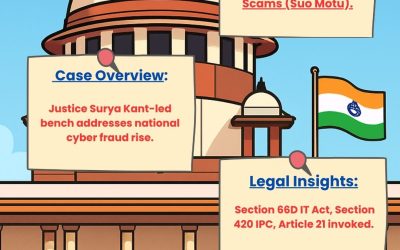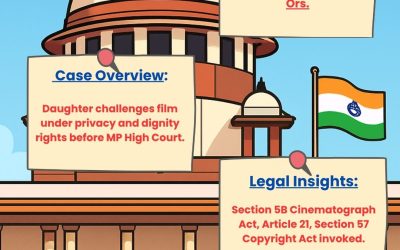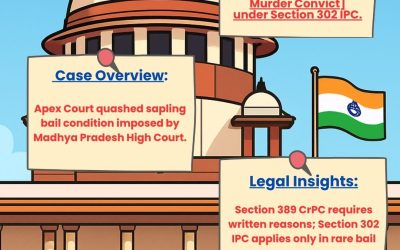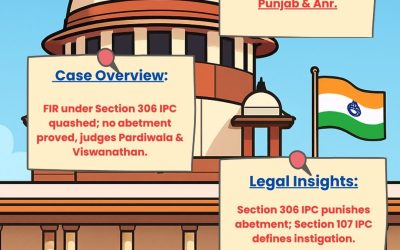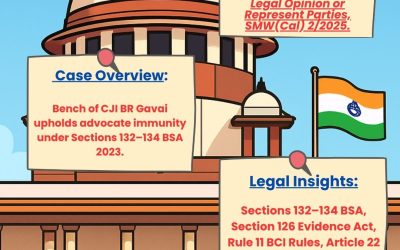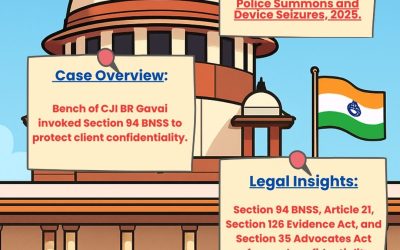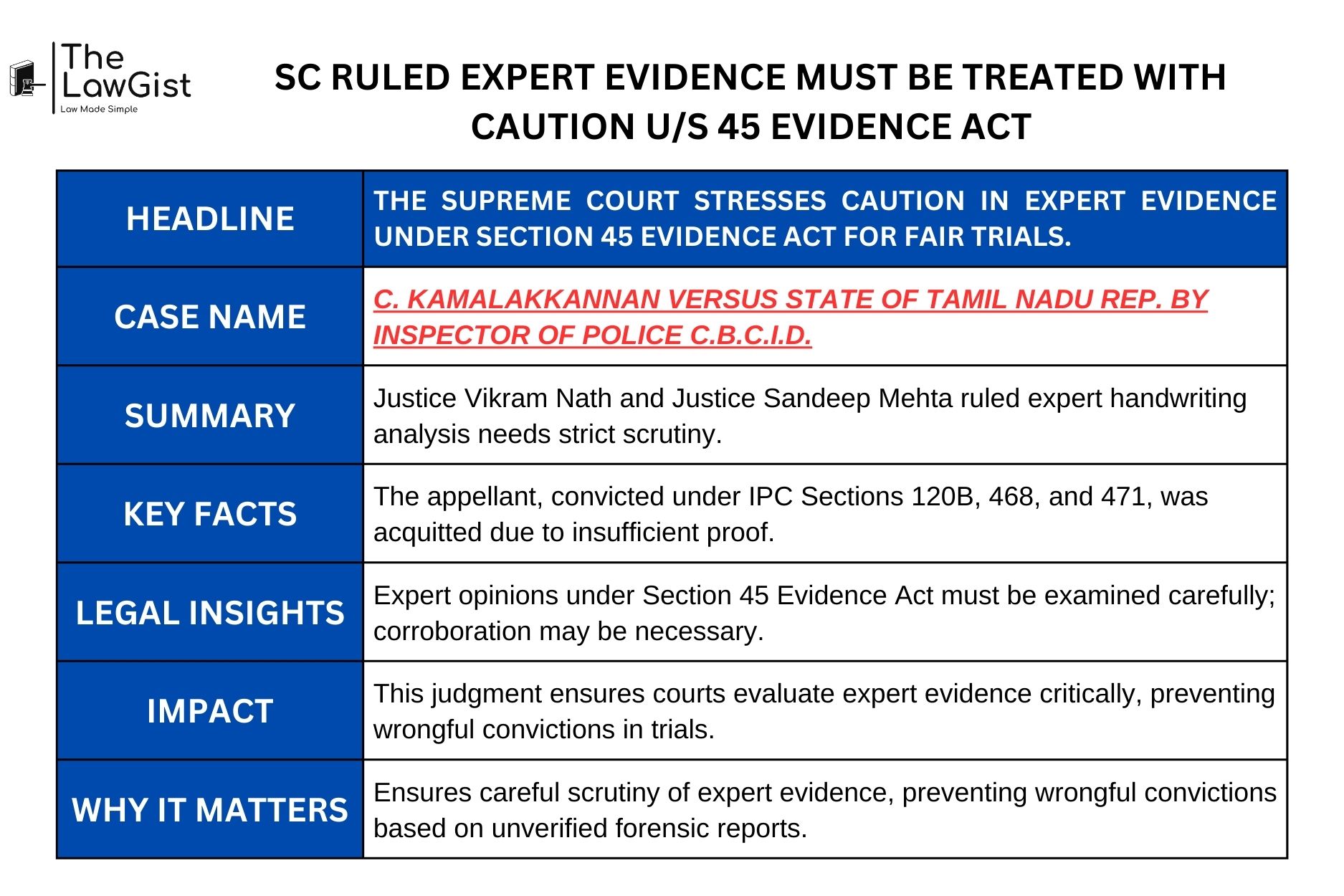
The Supreme Court ruling highlights the need for caution in expert evidence under Section 45 Evidence Act.
SC RULED EXPERT EVIDENCE MUST BE TREATED WITH CAUTION U/S 45 EVIDENCE ACT
Headline:
The SC ruled Expert Evidence Must Be Treated with Caution U/S 45 Evidence Act in the case of ‘C. KAMALAKKANNAN vs. STATE OF TN REP. BY INSPECTOR OF POLICE C.B.C.I.D.’
Summary
The Supreme Court, in a judgment given by Justice Vikram Nath and Justice Sandeep Mehta stated that expert evidence, mainly handwriting analysis, must be dealt with cautiously. The court acquitted the appellant due to the failure of prosecution to prove the existence of the disputed document.
Key Facts
- Case Name: C. KAMALAKKANNAN vs. STATE OF TAMIL NADU REP. BY INSPECTOR OF POLICE C.B.C.I.D.
- Judges: Justice Vikram Nath and Justice Sandeep Mehta
- The appellant was convicted under sections of Indian Penal Code which are 120B, 468, and 471.
- The prosecution was dependent upon a handwriting expert’s testimony, but the disputed postal cover was not exhibited.
Legal Insights
U/S 45 of Indian Evidence Act, expert opinions are admissible but it must be scrutinised with care. The Supreme court quoted the case of Murari Lal v. State of M.P. and stressed that the statement of experts should not be accepted blindly and need corroboration.
Impact
This ruling of the Supreme Court focuses on the cautious approach courts must follow while considering the evidence from experts for fair trials and controlling wrongful convictions based on unverified forensic reports.
Why it matters
This ruling of the Supreme Court ensures expert evidence is scrutinized with care and thoroughly, controlling wrongful convictions based on unverified forensic reports.
Source


